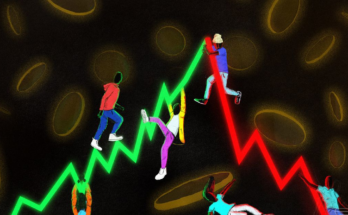The non-fungible token (NFT) mania has inspired Ethereum fans to spend more than $224 million on crypto collectibles so far in 2021 through marketplaces OpenSea and Rarible, but many buyers may not understand what they actually own.
“An NFT is not that different from any other crypto purchase in that you are buying control over information in an entry in a ledger,” said attorney Nelson Rosario, one of the founders of Smolinski Rosario Law.
NFT buyers don’t actually own the media files associated with their blockchain receipts, whether those files are JPEGs or GIFS or MP3s.
NFT buyers don’t actually own the media files associated with their blockchain receipts, whether those files are JPEGs or GIFS or MP3s. The best way to know which aspects of the NFT craze will outlast this trendy boom is to look at the history of comparable assets. As it turns out, people have been making crypto collectibles for nearly seven years.
Zebedee co-founder Christian Moss, who has been working on blockchain-based games since 2014, said he stopped making Bitcoin-based collectibles because transaction fees shot up. To make matters worse, some buyers viewed tokens as investments instead of as toys.
“They were tokens on Bitcoin,” Moss said. “A lot of developers ended up trying to pump their tokens and prices. … It felt like people who played those games felt like they were investors on the board. I don’t want my game to be an investment vehicle. Then players might try to sue me if they lost their tokens. It changed the dynamic of the game.”
These days, Moss helps people earn small amounts of bitcoin by playing mainstream video games like Counter-Strike. That way, there’s no confusion about how to value virtual assets; cryptocurrency is money and in-game assets are toys.
“NFTs aren’t game items at all; they are receipts,” Moss said. “If you have the receipt, you might be able to get an item in a game, but they can’t allow a Zelda sword NFT [in Counter-Strike], for example, because that might be copyright infringement. There are legal implications there.”
Indeed, legal implications are the crux of the NFT trend. Whether a court would protect the receipt-holder’s ownership over a given file depends on a variety of factors.
“It’s great if the artist intends to transfer any copyright for a work of art to an NFT purchaser, but can that be perfected to the point where a court of law or copyright office would recognize that transfer? That gets into additional questions of jurisdiction,” Rosario said. “Brands and platforms need to make sure they have the right agreements in place to govern these relationships.”
With regard to NFT sellers who take screenshots of other people’s content and profit from a corresponding NFT, Rosario said it’s hard to say whether that violates any laws.
“You probably start by looking at Twitter’s terms of service and begin the investigation there. It really depends,” he said, adding that impersonation or stealing someone’s passwords are different issues entirely.
And there are still open questions beyond copyright issues and fraud, such as sanctions and porn regulations.
Finding a space for adult content
A growing number of adult content creators are selling erotic NFTs on platforms like Rarible, often earning hundreds of dollars per photo. One such artist, PolyAnnie, said she has earned more from selling NFTs on Rarible alone than her average annual earnings across platforms like OnlyFans, Patreon and ManyVids combined.
“I sold 90 NFTs, bringing in 10.11 ETH in five months,” she said. “I purchased 18 NFTs from other creators, too.”
Some jurisdictions have age-verification requirements for platforms with adult content, while other jurisdictions make platforms potentially liable for child porn or revenge porn if the platforms don’t heavily moderate explicit content. As such, platform providers tend to be conservative about their terms of service.
“A lot of these NFT platforms don’t want to deal with the risks of sexually oriented content,” PolyAnnie said.
That’s why some sex workers have had their content censored by platforms like Rarible. As for the most popular NFT platform, OpenSea, which raised a Series A round from a16z earlier this month, CEO Devin Finzer said his team moderates the platform and limits search results for adult content, so those NFTs can only be found by someone going directly to the creator’s profile.
“We haven’t exactly nailed it down, but one option is a separate section of our site for that type of content,” Finzer said.



